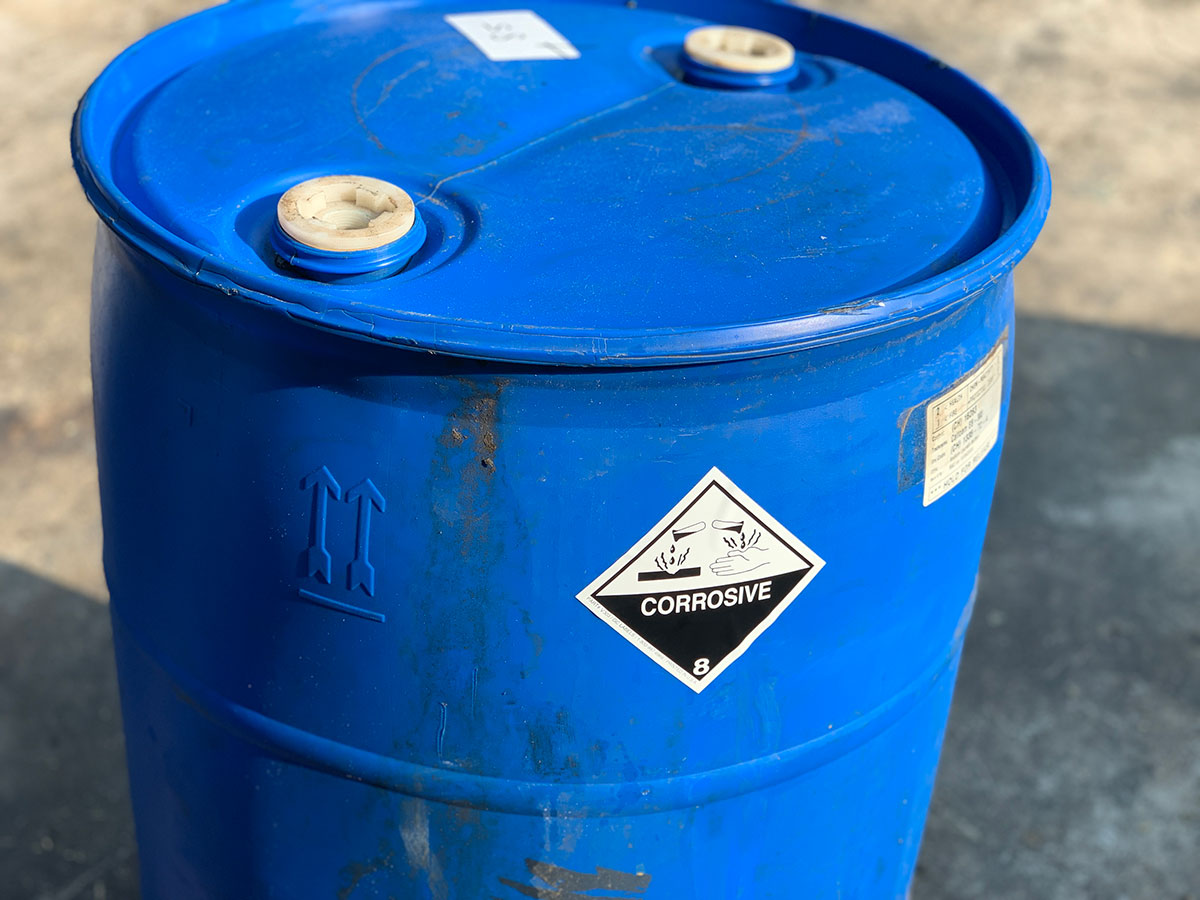Acidic and Caustic Waste Disposal
Acidic and caustic waste materials will usually fall into the category of Characteristic hazardous waste due to their corrosive nature. “Corrosives” are defined by their ability to chemically destroy the material(s) that they come into contact with, which makes them especially hazardous for human exposure. Their damage can be immediate. That’s why proper acid and caustic waste disposal is so important.
To be considered a hazardous waste, acidic wastes must have a pH less than or equal to two, while caustic (basic) wastes must have a pH greater than or equal to 12.5. A third way to determine if the waste on your hands is hazardous due to its characteristics is by evaluating the rate at which it corrodes steel. When an aqueous waste “corrodes steel at a rate greater than 6.35 mm per year at a test temperature of 55 C (130F), it is considered corrosive” (California Environmental Protection Agency) and requires treatment technologies.

Common examples of Acids:
- Hydrochloric acid
- Acetic acid
- Boric acid
- Hydrofluoric acid
- Phosphoric acid
- Nitric acid
- Sulfuric acid
Common Examples of Caustics:
- Calcium hydroxide
- Lithium hydroxide
- Potassium hydroxide
- Sodium hydroxide
- Ammonium hydroxide
Not all corrosives have the same intensity. Their effects on human health can range from mild irritations to fatalities. The stronger the acid or base and the longer workers are exposed to it, the more harmful the resulting issues will be. To learn more about how corrosives can affect workers’ health, visit the Canadian Centre for Occupational Health and Safety’s page on corrosives.
Acidic and caustic materials can be found in many workplaces, which is why having the proper training on how to handle these substances is essential for workplace safety. To help protect your workers and keep your facility regulation compliant, Clean Management offers OSHA training, trainer training, HAZWOPER courses, and several other training classes. For more information on these training services or to learn more about our acid and caustic waste disposal options, contact Clean Management today.






